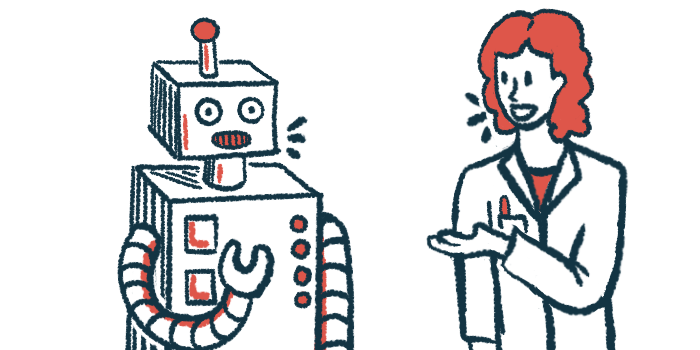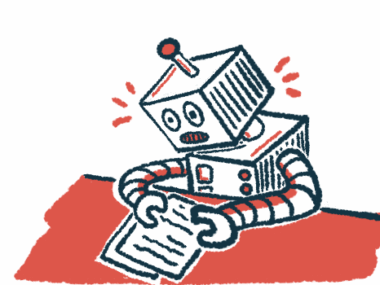New AI tool may help physicians diagnose rare diseases like AADC
Researchers: Patients would be connected to specialists for confirmation
Written by |

Researchers in Germany are creating an artificial intelligence (AI) tool to help physicians diagnose rare diseases, such as aromatic l-amino acid decarboxylase (AADC) deficiency, and connect their patients to specialists.
“At the end of the project, physicians will be able to upload a patient’s symptoms and medical results onto a website,” Michael von Wagner, MD, the chief medical information officer at University Hospital Frankfurt, said in a university news story. “The system will then suggest a diagnosis and propose additional measures.”
Patients using the new system, dubbed the SATURN project, would be referred to specialists who could then confirm their diagnoses, the researchers noted.
An initial version of the AI tool went online in February 2024.
Doctors’ participation aims to make AI-based system more patient-friendly
Diagnosing AADC deficiency can be a long and complicated process, and the same is true for many other rare diseases. Here, the research team — comprised of physicians and computer scientists — is designing SATURN to help general practitioners who don’t have detailed knowledge of most rare diseases. Clinicians can then take steps to assess the accuracy of the system’s initial diagnoses.
While other tools also use AI to help physicians diagnose rare diseases, the SATURN project has a few key differences, according to von Wagner.
One is that it helps general providers connect their patients with rare disease experts to confirm diagnoses.
“For many of these diseases, there are only a few specialists … who are familiar with the course of the disease and the diagnosis and continue to conduct research into them,” von Wagner said.
The SATURN project makes these connections by linking to the SE-ATLAS, a registry of rare disease care centers and patient support groups in Germany.
We want to make the entire system as practical and patient-friendly as possible, which is why we have worked closely with physicians from the outse.
The project’s AI tools were designed to resemble physicians’ diagnostic practices. Most AIs depend on pattern recognition in large batches of data.
“In medicine, however, it is often helpful to be able to find even one very similar case that has been correctly recognized and treated in the past,” von Wagner said.
Three AI methods help the system perform this kind of matching. One uses a rule-based system of medical guidelines and clinical expertise to guide decision-making. Another compares the similarity of the case to previous cases in its database. Finally, using machine learning algorithms, the system organizes and prepares its findings for physicians.
Data-protection measures have been implemented to help the SATURN project meet cybersecurity requirements.
“We want to make the entire system as practical and patient-friendly as possible, which is why we have worked closely with physicians from the outset,” von Wagner said.
In a 2023 study, the research team had general practitioners use the tool and asked for feedback. One participant suggested linking to the SE-ATLAS, which the team implemented.
This and other studies have focused on brittle bone disease, which, like AADC deficiency, is a genetic disorder.
“I am very optimistic that we can make real progress in the diagnosis of rare diseases with this project,” von Wagner said. “We have excellent clinical data, a suitable AI algorithm, and software adapted to clinical practice.”






